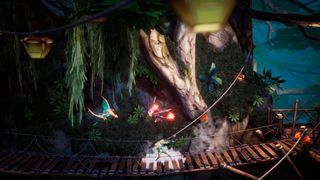The Metroidvania genre is on fire right now, and Tales of Kenzera Zau just jumped to the top of my most-anticipated list
Opinion | The debut venture from Surgent Studios enters a genre in great health
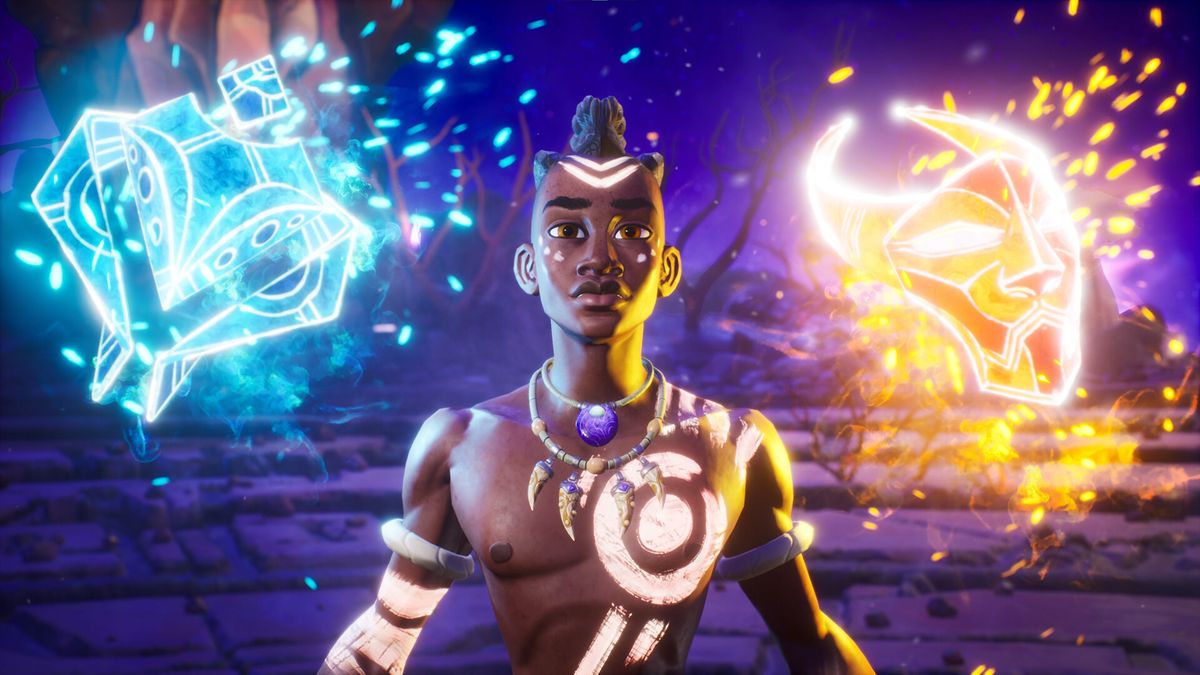
Tales of Kenzera: Zau has jumped to the top of my most-anticipated Metroidvania list. This isn't a bad thing per se, but my tailored catalog of cool-genre-games-to-play-next is growing by the day – to the point where I've started a spreadsheet just to keep track. In case that needs repeating, I've started a damn spreadsheet. So vibrant is the Metroidvania space in 2024 that I've been compelled to keep a somewhat formal record of the games that are due in the coming weeks and months, which aligns with how buzzing I am to play them.
It's a simple system, a traffic-light style rubric where red marks the games I'm least interested in, amber is games I want to play, green is the games I need to play, and purple is the one Metroidvania game I'm looking forward to most – the latter slot only ever housing one game at a time. At present, there are no games in the red zone. And at present, Tales of Kenzera: Zau holds my one purple top spot.
Zau and now
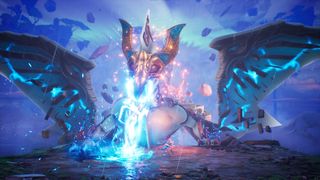
A strangely personal way to start an impressions feature perhaps, but a relevant one nevertheless. Tales of Kenzera: Zau's public demo kicks off today on PC via Steam, you see, and having spent the last few days getting to grips with its systems, clambering around its multi-platformed world, and being dazzled by its soundtrack (the latter written by multi-award-winning composer Nainita Desai) during its early access period, the game is, indeed, one I'm now very much looking forward to.
As the debut venture of Surgent Studios, you may already know that Tales of Kenzera is inspired by the loss and grief experienced by founder Abubakar Salim in the wake of his father's passing. When we caught up with Salim last year (who you may otherwise know as Bayek of Siwa from Assassin's Creed Origins, a role that bagged him a BAFTA Breakthrough Brit award, and ultimately inspired him to form his own development studio and create his first video game), he said the Metroidvania genre was the perfect stage to depict grief – in that your character is almost always dropped into a world they know little about, they're forced to explore and acquire tools to help them on their journey, and ultimately are, through all of this, somehow expected to make sense of it all.
Tales of Kenzera takes these sentiments and bakes them into a universe inspired by Bantu history – mixing fact with its fireside fables and age-old mythology – wherein you're visited by ancient shamans, sacred spirits and fascinating creatures in your bid to resurrect your recently departed father after striking a deal with Kalunga, the God of Death, who becomes your guide in a world filled lost ancestral spirits. For reasons initially unknown, these spirits are hostile, and so begins the young Nganga protagonist's poignant journey; one underpinned by self-discovery and uncertainty.
This narrative arc alone has me hooked already, but Tales of Kenzera's mechanical chops are worth shouting about too. Early doors, you acquire two interchangeable weapons, the Sun and Moon masks, that deal different forms of damage. Enemies are generally susceptible to one or the other, and so combat often involves a fast-firing, breakneck pattern of long and short, light and heavy, Sun and Moon-powered attacks – whereby success on the battlefield is determined as much by timing and rhythm as it is grit and determination.
Moreover, as with any Metroidvania worth its salt, Tales of Kenzera boasts an array of genre-familiar features that complement all of the above. Ulogi, for example, is a soul energy that's sucked from fallen foes or from breaking open Ulogi Crystals. In turn, these are used to earn Shaman Points that can be used to upgrade your Skills. In combat, as well as the aforementioned light, heavy, melee and ranged offerings Spirit Attacks consume extra Spirit Segments (identified in glowing purpley-pink at the foot of the HUD) to deliver more powerful attacks. With the Mask of the Moon equipped, a Lunar Blast delivers a devastating energy beam, the direction of which can be steered towards whoever/whatever you fancy obliterating; whereas the Mask of the Sun's Spirit Attack is the Super Nova, which transforms you into "a towering inferno of Shamanistic fire". Ouch.
Sign up to the 12DOVE Newsletter
Weekly digests, tales from the communities you love, and more
Powers that be

"The Metroidvania genre is firing on all cylinders at the moment... it really is a great time for fans of gated worlds, extraordinary abilities, and bastard-hard baddies. Especially those with colorful spreadsheets."
Ultimately, any demo time with a decent Metroidvania is welcomed but never enough. I've barely scratched the surface of what promises to be an epic, heartwarming and inevitably heart-wrenching adventure in Tales of Kenzera: Zau, that's as thoughtful as it is incisive.
Again, the Metroidvania genre is firing on all cylinders at the moment, with the likes of The Last Case of Benedict Fox, Prince of Persia: The Lost Crown, Blasphemous 2 and Worldless all launching in the last year, and with Ultros, (hopefully) Hollow Knight: Silksong, and, of course, Tales of Kenzera: Zau all perched on the horizon, it really is a great time for fans of gated worlds, extraordinary abilities, and bastard-hard baddies. Especially those with colorful spreadsheets.
Throw in some narrative nous that tackles lesser-explored lore and idiosyncratic cultural legend, and I'm more than sold. If you are too, know that Tales of Kenzera: Zau is due on April 23 on PC, PS5, Xbox Series X and S, and the Nintendo Switch.
Check out the best Metroidvania games to play while you wait for this one

Joe Donnelly is a sports editor from Glasgow and former features editor at 12DOVE. A mental health advocate, Joe has written about video games and mental health for The Guardian, New Statesman, VICE, PC Gamer and many more, and believes the interactive nature of video games makes them uniquely placed to educate and inform. His book Checkpoint considers the complex intersections of video games and mental health, and was shortlisted for Scotland's National Book of the Year for non-fiction in 2021. As familiar with the streets of Los Santos as he is the west of Scotland, Joe can often be found living his best and worst lives in GTA Online and its PC role-playing scene.
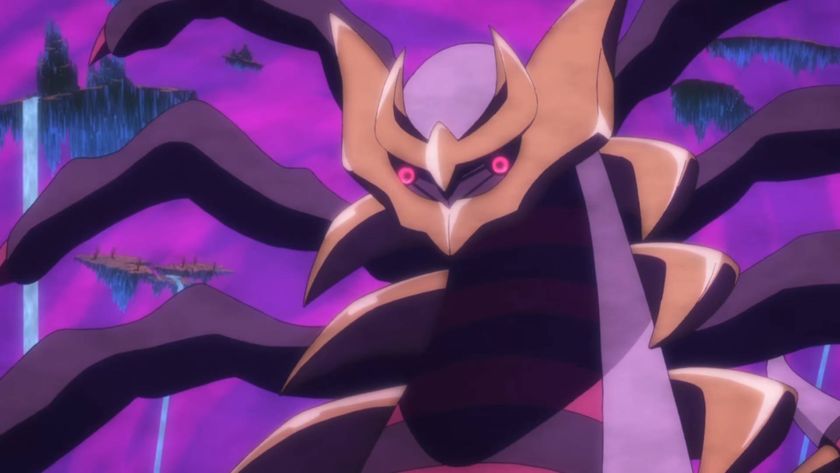
Pokemon Platinum's most obscure feature was a reward seemingly given to just 20 players lucky enough to participate in a complicated limited-time event with a lottery prize
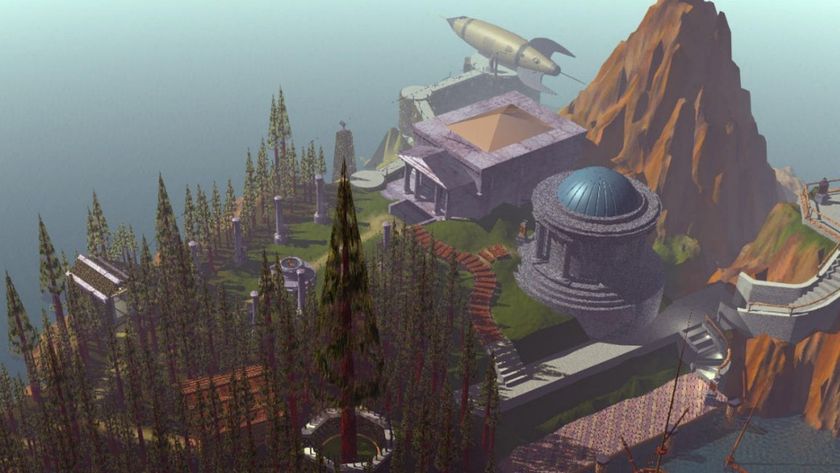
37-year-old studio behind iconic PC game Myst and one of the longest-surviving indies in the world just laid off "roughly half the team"
